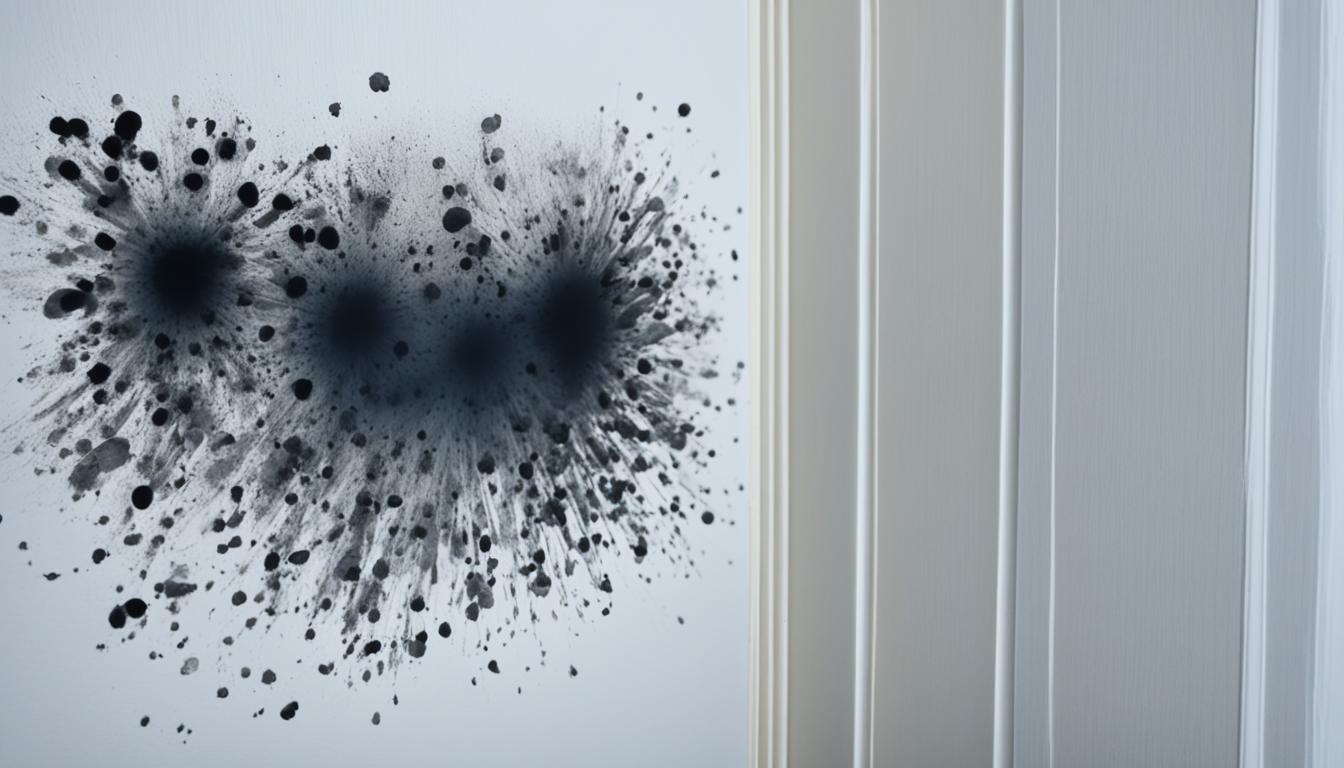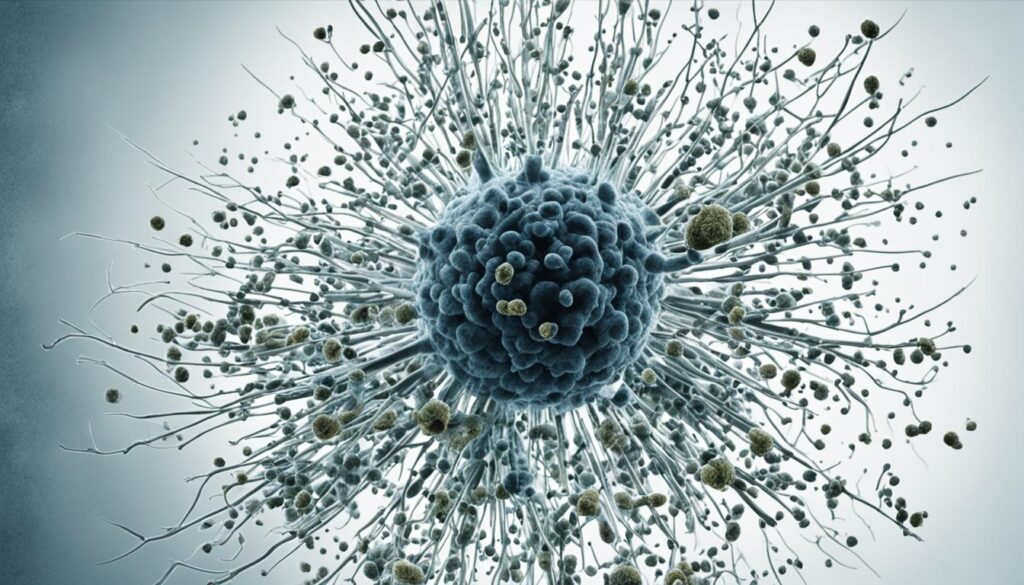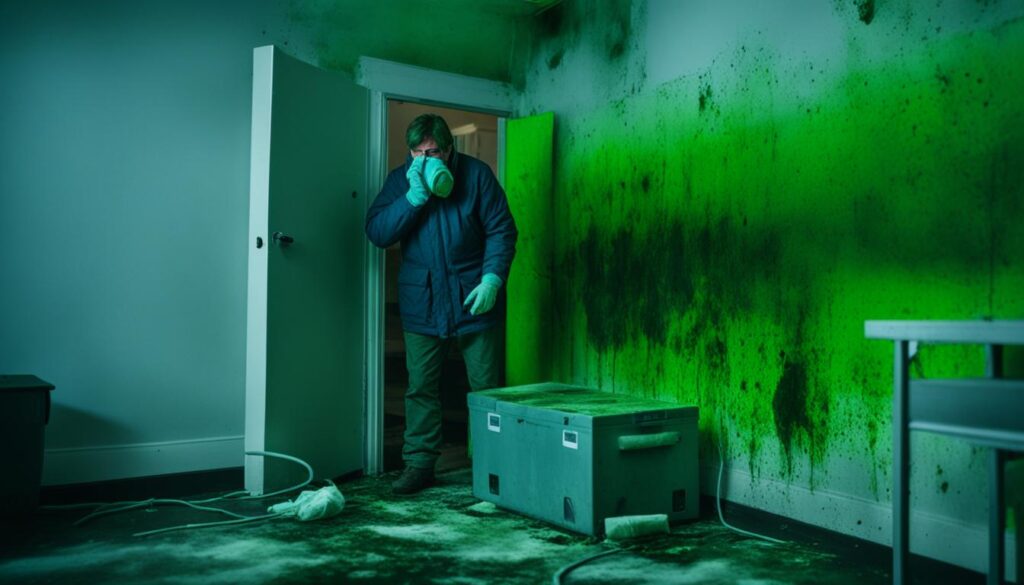
Understanding Black Mold Poisoning Risks & Symptoms
Black mold poisoning is a serious concern that can have detrimental effects on your health. Exposure to black mold can lead to a range of health risks and cause various symptoms that should not be overlooked. It is essential to familiarize yourself with the potential dangers and understand the common signs of black mold poisoning to protect yourself and your loved ones.
Black mold, scientifically known as Stachybotrys chartarum, is a type of fungus commonly found in moist environments. It thrives in places with high humidity, such as bathrooms, basements, and areas affected by water damage. When present in buildings, black mold releases spores into the air, which, when inhaled or touched, can enter the body and cause health problems.
The health risks associated with black mold poisoning can be severe. Prolonged exposure to black mold can lead to respiratory issues, including coughing, wheezing, and difficulty breathing. Individuals with allergies may experience heightened allergic reactions, such as sneezing, itching, and watery eyes. Moreover, black mold can also impact the neurological system, resulting in headaches, dizziness, and even memory loss.
Recognizing the common symptoms of black mold poisoning is crucial for early detection and effective treatment. Pay attention to respiratory problems, such as persistent coughing, shortness of breath, and sinus congestion. Skin irritation, such as rashes, redness, and itchiness, may also be a sign of black mold exposure. Additionally, watch out for neurological symptoms like difficulty concentrating, confusion, and mood swings.
Key Takeaways:
- Black mold poisoning can have serious health risks and should not be ignored.
- Exposure to black mold can lead to respiratory issues, allergies, and neurological symptoms.
- Common symptoms of black mold poisoning include respiratory problems, skin irritation, and neurological issues.
- Prompt action is vital if you suspect black mold exposure. Seek medical attention and professional mold assessment.
- Protect yourself and your loved ones from black mold poisoning through preventive measures and timely interventions.
Health Risks of Black Mold Poisoning
Black mold poisoning can have significant health risks and consequences for individuals exposed to it. It is crucial to be aware of these risks in order to protect your well-being. Here, we will explore some of the potential health issues that can arise from exposure to black mold.
Respiratory Issues
One of the primary health risks associated with black mold poisoning is the development of respiratory problems. When individuals inhale or come into contact with airborne spores from black mold, it can lead to respiratory complications such as coughing, wheezing, and difficulty breathing. Prolonged exposure may even cause asthma attacks or other serious respiratory conditions.
Allergies and Sensitivities
Black mold exposure can also trigger allergic reactions in certain individuals. Common symptoms may include sneezing, runny nose, itchy eyes, and skin rashes. People with pre-existing allergies or sensitivities may experience more severe reactions when exposed to black mold, exacerbating their symptoms and impacting their overall quality of life.
Other Adverse Health Effects
Besides respiratory issues and allergies, black mold poisoning can have a range of other adverse health effects. These can vary depending on factors such as the individual’s overall health, the duration of exposure, and the specific strain of mold present. Some potential complications may include headaches, fatigue, dizziness, nausea, and even neurological symptoms like memory loss or difficulty concentrating.
| Health Risks of Black Mold Poisoning | Symptoms |
|---|---|
| Respiratory Issues | Coughing, wheezing, difficulty breathing |
| Allergies and Sensitivities | Sneezing, runny nose, itchy eyes, skin rashes |
| Other Adverse Health Effects | Headaches, fatigue, dizziness, nausea, neurological symptoms |
It is important to note that the severity of these health risks can vary from person to person. Some individuals may experience mild symptoms, while others may suffer more severe effects. Regardless, it is crucial to take necessary precautions to minimize the risk of exposure to black mold and seek appropriate medical attention if you suspect black mold poisoning.

Stay informed and create a safe environment for yourself and your loved ones by understanding the health risks associated with black mold poisoning. In the next section, we will delve into the recognizing the common symptoms of black mold poisoning, allowing for timely interventions and treatment.
Recognizing Common Symptoms of Black Mold Poisoning
Identifying the symptoms of black mold poisoning is crucial for early detection and prompt action. Recognizing these symptoms can help individuals seek appropriate medical attention and mitigate potential health risks.
When exposed to black mold, individuals may experience a range of common symptoms that serve as early warning signs. These symptoms can manifest in various ways, and it’s important to be vigilant regarding any changes in your health or that of your loved ones.
Common Symptoms of Black Mold Poisoning:
- Respiratory problems, such as coughing, wheezing, and shortness of breath.
- Skin irritation, including rashes, redness, and itchiness.
- Neurological symptoms, such as headaches, confusion, and memory problems.
- Eye and throat irritation, leading to watery eyes and a sore throat.
- Fatigue and weakness.
- Allergic reactions, such as sneezing, nasal congestion, and sinus issues.

It’s important to note that these symptoms may not always be exclusive to black mold poisoning, as they can also be indicative of other health conditions or allergies. However, if you suspect exposure to black mold and experience these symptoms, it is advisable to consult a medical professional for an accurate diagnosis and appropriate treatment.
Conclusion
In conclusion, black mold poisoning is a serious health concern that can have detrimental effects on individuals. It is important to understand the health risks associated with black mold exposure and recognize the common symptoms for early detection and intervention. By doing so, individuals can take proactive measures to prevent and address black mold issues in their environments.
If you suspect the presence of black mold in your home or workplace, it is crucial to seek professional assistance. Contact Fix Mold Miami at 305-465-6653 for a comprehensive mold assessment. Their team of experts can identify the extent of the mold problem and provide appropriate solutions to ensure your living and working spaces are safe.
Protecting yourself and your loved ones from the dangers of black mold poisoning requires timely interventions. Stay informed, take action, and prioritize your health and well-being.




